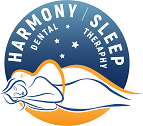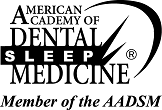Oral orthotics is considered a medical treatment for a medical disease. Dental insurance will not cover this procedure. This arrangement makes it difficult for dentists to bill for the orthotic and requires significant effort on the part of the dental office staff. Dentists often have contracts with insurance companies as "dental providers" who are paid only for dental procedures. Physicians have contracts with insurance companies as "medical providers" and are not trained in the fabrication of oral orthotics that is accepted by the FDA for the treatment of obstructive sleep apnea.
Most medical insurers in the United States have "medical policy guidelines" that spell out what they will pay for as an insurer. They also set forth the guidelines (on their website) what a patient must meet before treatment will be covered. Most insurers have guidelines that read "the patient must have more than 15 breathing events per hour or 15 breathing events per hour and two symptoms such as excessive daytime sleepiness, high blood pressure, heart failure, mood disorder or stroke." Each insurance policy holder has the right to contact his/her medical insurer and obtain a copy of the medical policy guidelines for the treatment of obstructive sleep apnea.
Insurance companies do not cover treatment for primary snoring, upper airway resistance syndrome or when the oral device is a convenience item for the patient who uses CPAP most of the time.
Questions you should ask and information you need to be aware of: Ask the member's service representative if the policy allows "network gap exception" or "network insufficiency." These terms mean that even though the insurance contract states that a patient must see an "in-network" provider (contracted with the insurance company) to obtain maximum coverage and the insurance company does not have a provider contracted to them, or an "in-network" provider who is trained to do oral orthotics, then the insurance company must pay any provider at the higher "in-network" rates. Some policies, often HMO's, will not allow "gap exception".
Some state insurance laws pre-empt insurance company policies and mandate "gap exception". The State Office on insurance may be of some assistance.
Be aware that most medical insurance companies do not know what an oral orthotic is. Some policies state that there is no coverage for "orthotic devices." The representative will then say that oral orthotics is not a covered service. When these policies were written this statement referred to foot orthotics (from a podiatrist), artificial limbs and other external detachable mechanisms. It is important that you ask to receive a copy of the medical policy for obstructive sleep apnea. If that portion of the contract says that "oral orthotics" specifically, are not covered, then there will be no coverage from the medical insurer. If there is no mention of oral orthotics under the medical policy guidelines for the treatment of obstructive sleep apnea, the patient can then make an argument that the policy does not really exclude coverage. The patient should ask again if the code E0486 is a covered service.
Harmony Dental Sleep Therapy will attempt to pre-certify when required.
Medicare will pay only contracted providers. Harmony Dental Sleep Therapy is a contracted provider. Medicare has two separate contracted groups; physicians and other medical providers contracted under the area of medical services. Companies that actually sell medical goods, such as CPAP machines, wheelchairs and nebulizers have a DME contract.
Medicare has a very strict medical policy for coverage of oral appliance therapy.
They have a different definition of obstructive sleep apnea and it is more stringent than commercial insurance companies. They require a prescription from the patient's physician that requests the dentist to make an oral orthotic. Medicare will hold a deductible and co-insurance that will be the patient’s responsibility. Expect Medicare to deny coverage the first time all of the paperwork is filed. Appealing their decision is standard operating procedure.
Many supplemental insurances will cover the deductible and co-insurance. For more information on Medicare, visit www.medicare.gov or www.medicarenhic.com.
Federal Blue Cross Blue Shield does not prior-authorize DME coverage and does not pre-certify payment for oral orthotics. They may cover a portion of the costs but their Basic Plan does not cover oral device therapy
We know of no dental provider who accepts payment through Welfare or state assistance:payment. We suggest that patients with this form of medical coverage assume all care out-of-pocket. Some patients have worked with their social workers and have been reimbursed in part or wholly by state aid.
• • •
|
|
| ``` PHYSICIAN REFERRAL FORM |
| SLEEP APNEA SELF TEST |
| SLEEP JOURNAL |
|
MARIA SOKOLINA D.D.S. 1066 Clifton Ave. Clifton, NJ 07013-3616 315 W57th Str, Ste 209, NYC, NY 10019 (973) 777-2731 (212) 960-8919 |
|
OFFICE HOURS: Mon: 8:00am - 5:00pm | Tue: 8:00am - 7:00pm Wed: 8:00am - 4:00pm | Thu: 8:00am -7:00pm Fri: 8:00am - 3:00pm | Sat: 8:00am - 2:00pm |







CONNECT WITH US

